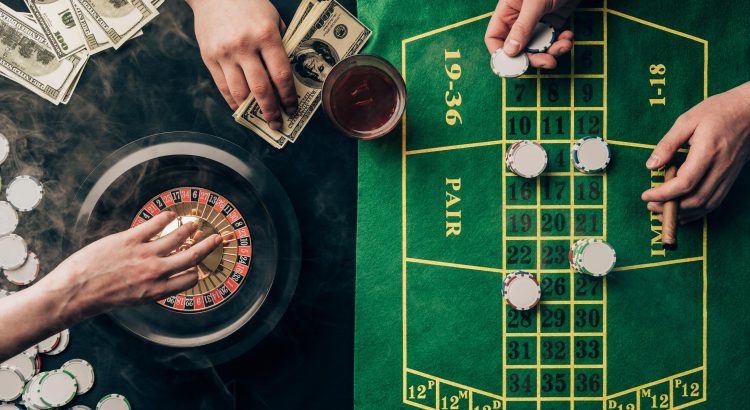Gambling addiction is a serious problem that can ruin lives. It’s important to be aware of the four stages of gambling addiction so you can spot the signs in yourself or someone you know and get help before it’s too late.
The first stage of gambling addiction is called the winning stage. In this stage, the gambler is euphoric and experiences a high from winning. They feel invincible and think they can control their gambling. They’re more likely to take risks, such as betting more money than they can afford to lose.
The second stage is the chasing stage. In this stage, the gambler starts to lose money and tries to make it back by gambling more. They may start borrowing money or selling possessions to get more money to gamble with. This is when the addiction starts to take over and causes serious problems in the gambler’s life.
The third stage is the desperation stage. In this stage, the gambler has lost everything and is desperate to get back to the winning stage. They may start resorting to illegal activities, such as stealing, to get money for gambling. This is when the addiction has taken over their life and they are in danger of losing everything.
The fourth and final stage is the bottom stage. In this stage, the gambler has lost everything and hit rock bottom. They may be in debt, unemployed, and homeless. This is when they may start to consider suicide as a way out.
If you or someone you know is struggling with gambling addiction, it’s important to get help as soon as possible. There are many resources available to help you or your loved one get through this difficult time.
The Desperation Phase of Gambling
Gambling can be a fun and exciting way to spend some time, but it can also lead to serious problems if it gets out of control. One of the most dangerous aspects of gambling is the desperation phase, when players become so desperate to win that they are willing to risk everything they have.
This phase can be extremely dangerous, both physically and mentally. Gamblers in this phase may suffer from anxiety, depression, and even suicidal thoughts. They may also take drastic measures to try to win money, including borrowing money from friends or family, selling possessions, or even stealing.
The desperation phase can lead to serious financial problems, as well as problems in personal relationships. Gamblers in this phase may find themselves losing their jobs, their homes, and their families. They may also end up in jail or in debt.
If you or someone you know is in the desperation phase of gambling, it is important to get help right away. There are many resources available to help gamblers get their lives back on track. Gamblers Anonymous is one such organization that can provide support and guidance to those struggling with gambling addiction.
How to Deal with the Hopeless Phase of Gambling?
When you’re in the throes of a gambling addiction, it can feel like there’s no way out. You might feel like you’re in too deep, and that there’s no turning back. This is called the “hopeless phase” of gambling, and it’s one of the most difficult parts of recovery.
The hopeless phase is characterized by feelings of despair and helplessness. You might feel like you’re a failure, and that you’ll never be able to stop gambling. This can be a very dark time, and it’s important to reach out for help if you’re feeling this way.
There are a few things that you can do to start working your way out of the hopeless phase:
1. Acknowledge that you’re in this phase.
The first step is to recognize that you’re in the hopeless phase of gambling. This can be a difficult thing to do, but it’s important to acknowledge what’s going on. Once you realize that you’re in this phase, you can start to work on making changes.
2. Seek out support.
One of the best things that you can do when you’re feeling hopeless is to seek out support from others. There are many different types of support groups available, both in-person and online. These groups can provide you with invaluable support and guidance as you work on recovery.
3. Make a plan.
When you’re feeling hopeless, it can be difficult to see a way out. But it’s important to remember that recovery is possible. Sit down and make a plan for how you’re going to stop gambling and get your life back on track. This plan can be as simple or as detailed as you need it to be. Just having a plan can give you a sense of hope and purpose.
4. Take action.
Once you have a plan, it’s time to start taking action. This might mean attending meetings, reaching out to a therapist or counselor, or making other changes in your life. The important thing is to take small steps each day to work towards your goal of recovery.
5. Be patient with yourself.
Recovery from gambling addiction is a process, and it takes time. There will be ups and downs, and there will be times when you feel like giving up. But if you keep working at it, eventually you will start to see progress. Be patient with yourself and don’t expect perfection. Every step forward is a victory.
If you’re in the hopeless phase of gambling, know that help is available and recovery is possible. Reach out for support, make a plan, and take action today.




